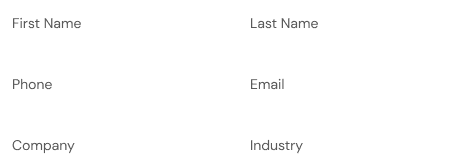Remote work has become increasingly popular over the last few years. Whether you want to travel the world, work from home, or start your own business, remote work gives you the freedom to do so. But running remote-first companies isn't as easy as it sounds. You need to be constantly on top of things to maintain optimal productivity. You need skilled and trustworthy people to work with, the proper technology, and project management skills to succeed.
Running a business is about more than just having great employees. It’s about having the right employees in place and knowing how to manage them well. Since remote teams are unique, here are five crucial skills you need to run an all-remote business:
1. Communication within remote-first companies
The most important skill you will need when running an all-remote business is communicating effectively. You can't pop over to someone's desk to ask your employees something or chat about what you're working on. You also won't find yourself having conversations in the lunchroom or meetings where collaboration comes naturally. This means that you need to articulate your thoughts and ideas clearly and concisely in writing and conferences.
Effective communication over email, phone, and video conferencing can make a huge difference in your productivity and efficiency. It would also help to use a single communication platform for your entire remote team to avoid missed announcements and chances to raise opinions.
2. Time management
It can be easy to get distracted or start working at odd hours when you work remotely. To run successful remote-first companies, you need to have good time management skills so that your employees don’t waste time on unproductive tasks.
Time management is essential in any business, even more so if running remote-first companies. As a remote business owner, you need to be very conscious of time because it directly affects your bottom line. The leading reason companies go remote is to cut down on costs, and one way of reducing costs is by using time optimally without wasting even a single second of employee time.

3. Organizing and managing remote teams effectively
Remote businesses need to have an organized system to manage their operations and employees. It can be challenging to keep track of everything when you don’t have a physical office where everyone can catch up quickly. When managing remote teams, you'll need to learn to harness the same tools and techniques you use for yourself to help others stay organized, too.
Translated to a remote work setting, this means being organized in terms of which software and tools to use for different business purposes. It also means managing the way files and documents are organized. When teammates can find files and notes quickly and easily, they'll be able to do their work more efficiently, helping you to manage them in the long run.
Working remotely often means working from home, where endless distractions can detract from your productivity. Being organized physically also helps minimize distractions to concentrate fully on the job at hand. When your physical workspace is tidy and organized, it's easier for your mind to be clear and focused on managing your remote teams.
4. Productivity while working from home
One of the essential skills you need to have as a remote business owner is managing and tracking your productivity. Being productive means getting things done within the agreed time frame. You will be working from home, and if you are not productive, your remote-first companies will most likely not meet their goals.
Although there may be various things at home that may distract you from working and managing your team, there are still ways to improve productivity. For example, you and your team can use goal-tracking applications where everyone can co-work, collaborate, and keep track of their tasks. Here is an article for remote work cultures that you can apply to your team.
5. Problem-solving
Managing remote teams is no easy feat. It takes a special kind of management skill to ensure that everyone stays on track. One of the most challenging aspects of managing remote teams is identifying and addressing potential problems before they happen or get out of hand.
To run an all-remote business, you need to be able to spot potential barriers in your systems, processes, or projects. You also need to know how to address them before they become a problem.

6. Leadership
When running an all-remote business, it's easy for teams to feel disconnected and even disconnected from the company. Your success as a remote business owner depends on your ability to lead effectively. Without strong leadership skills — or access to leaders — your business will struggle to grow.
You might be thinking, “I’m not a leader. I’m just an entrepreneur!” But building remote-first companies requires you to take charge and lead the way. It doesn’t matter how many employees you have or how large your organization is: Your people are looking to you for direction. You must have the skills to guide them.
EOR services can make remote work easier
Running remote-first companies can come with unique challenges. However, with some planning, preparation, and the crucial skills we mentioned above, you can significantly reduce the risk and increase your potential for success. It’s good also to have flexibility, give your team some room to grow, and not get trapped into running your company in an overly formal or traditional way.
If you find yourself having difficulties juggling your time over your business functions and employee management tasks, Remotify can help. We will act as your employer on record (EOR) in the Philippines to let you hire and manage your Filipino employees legally without building an entity. Our EOR services include HR administration, payroll management, and team engagement when managing your remote teams. This way, you can free yourself up and spend more time growing your business.
To know more about our services, you can check out this page or schedule a call with us.
Jump straight to a key chapter
Spending Too
Much Time
Onboarding?
your remote hiring in the
Philippines, excellently.
Say Goodbye to High Costs!
Request Your Free Consultation Today andSave a Massive 70% on Your Workforce!

Ready to thrive in a remote-first work environment?



